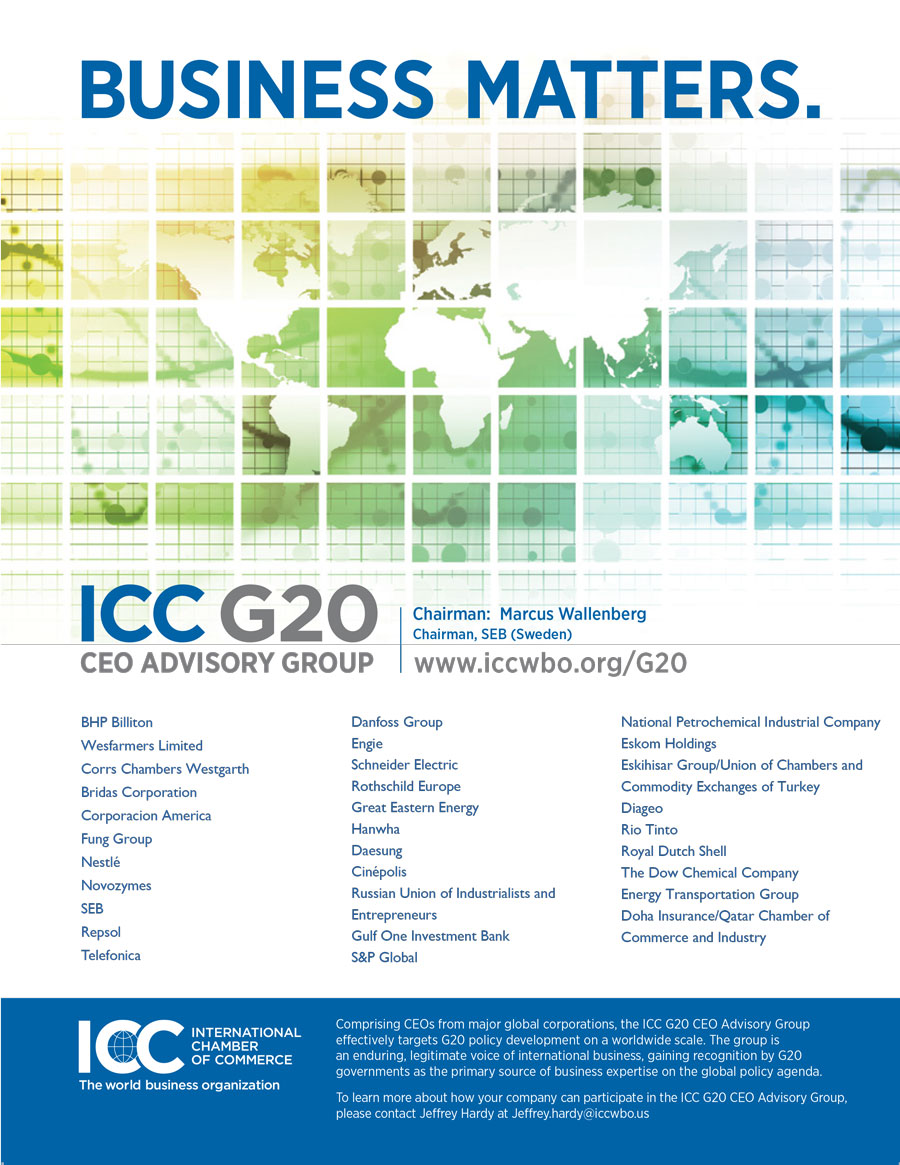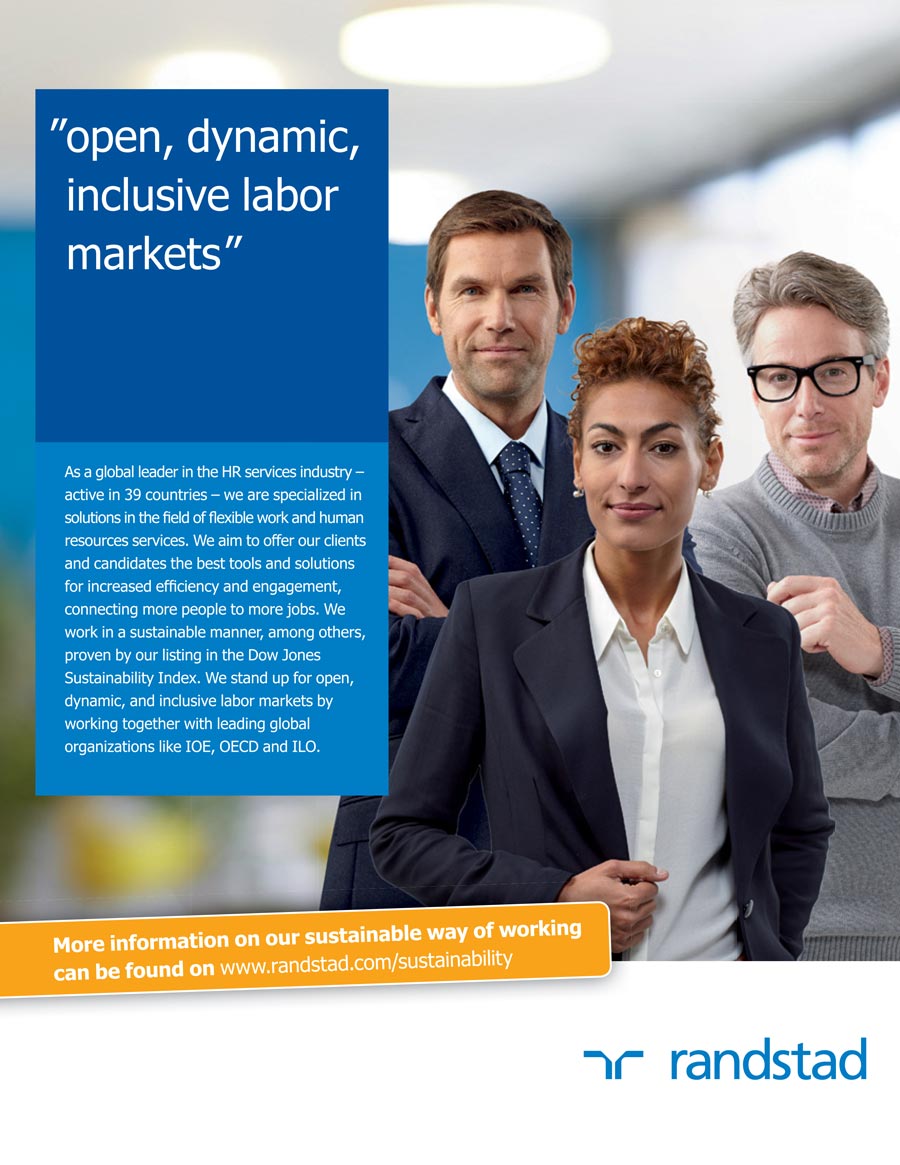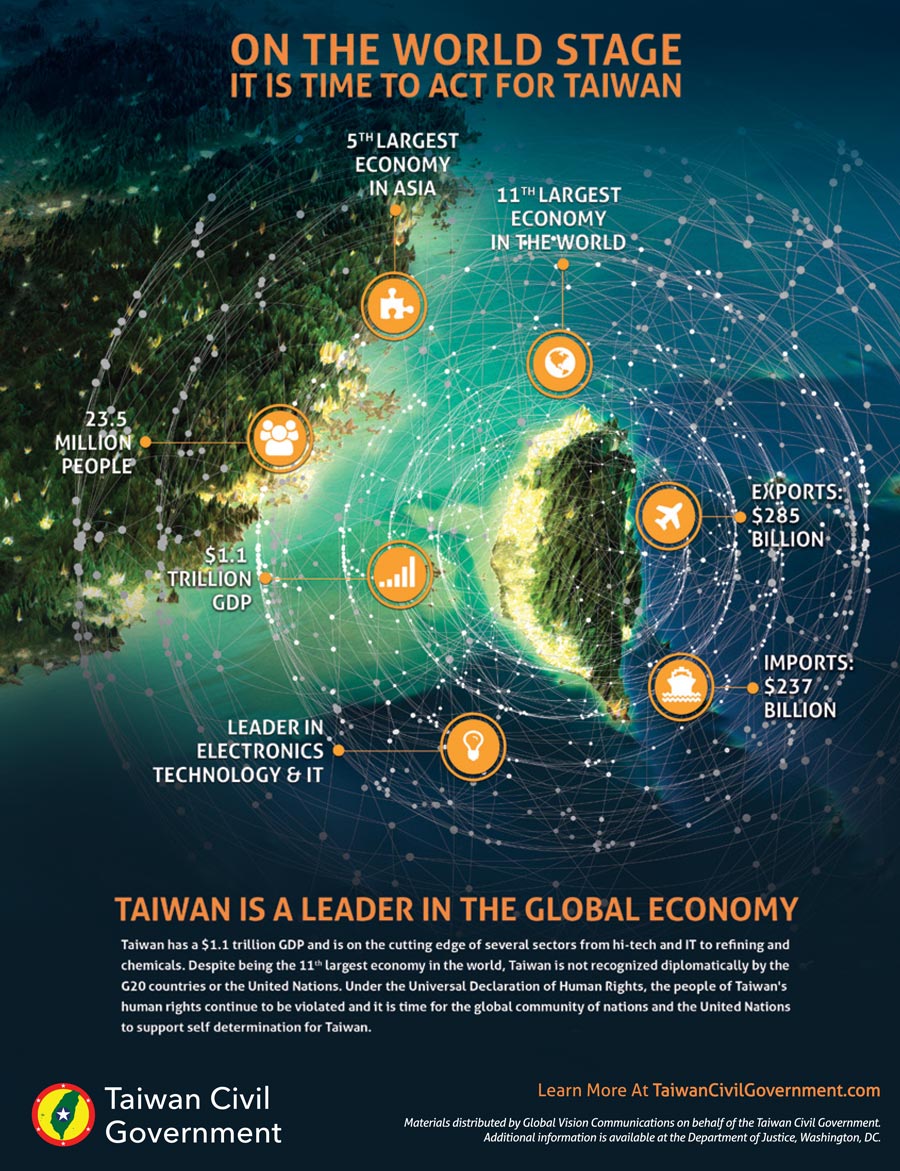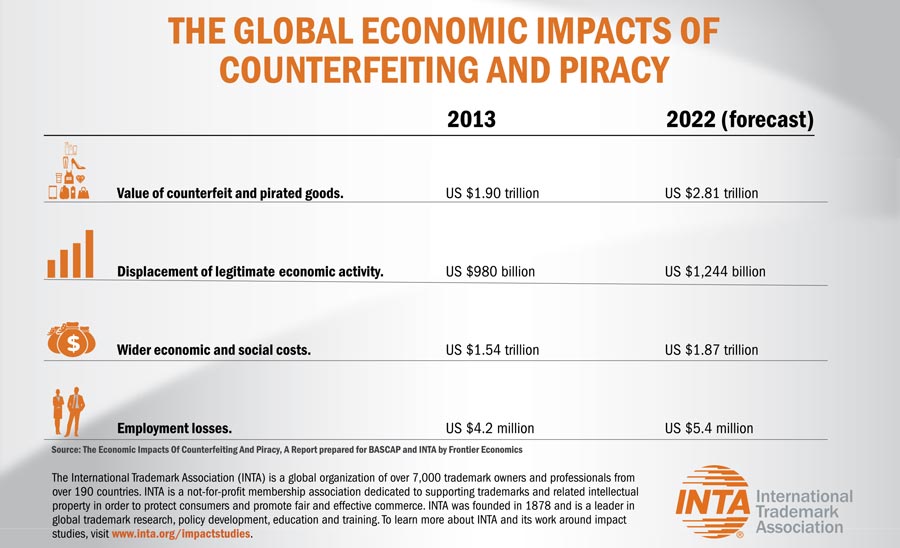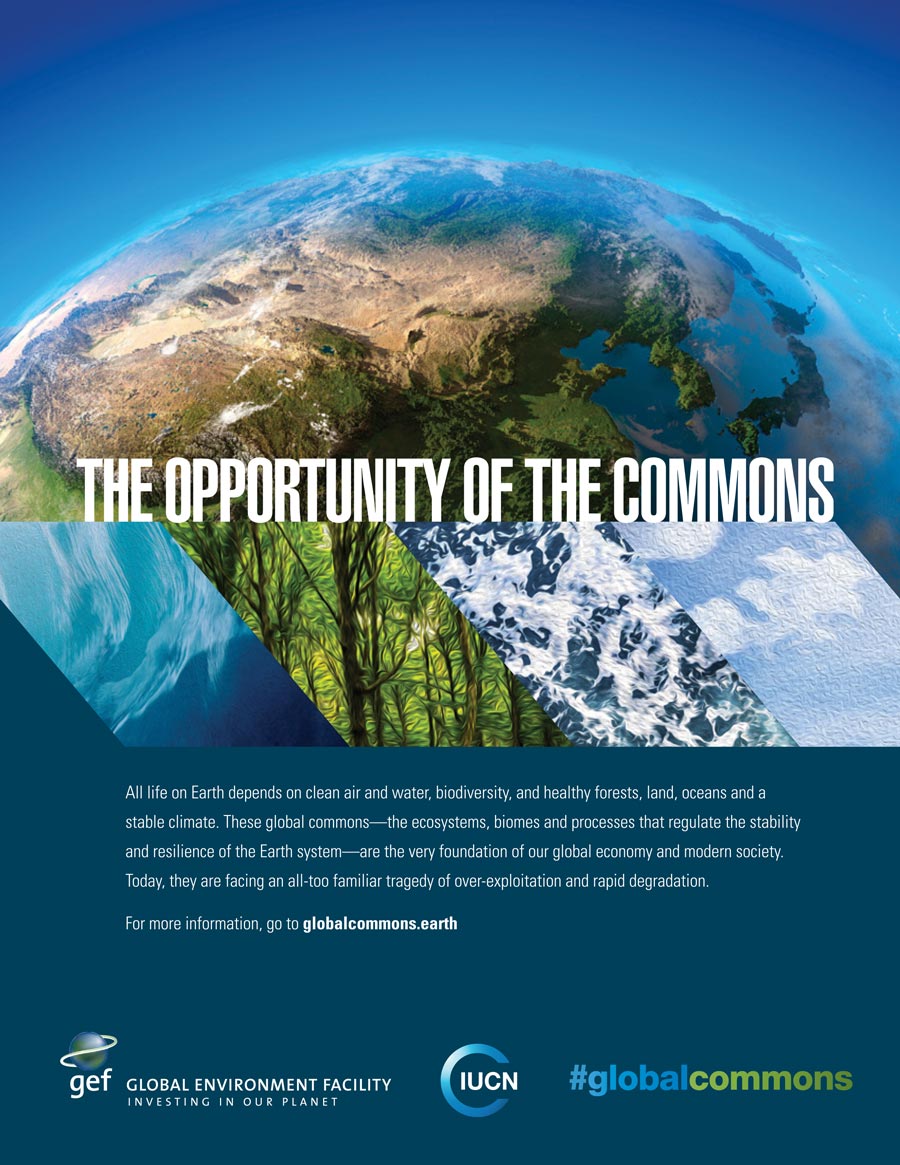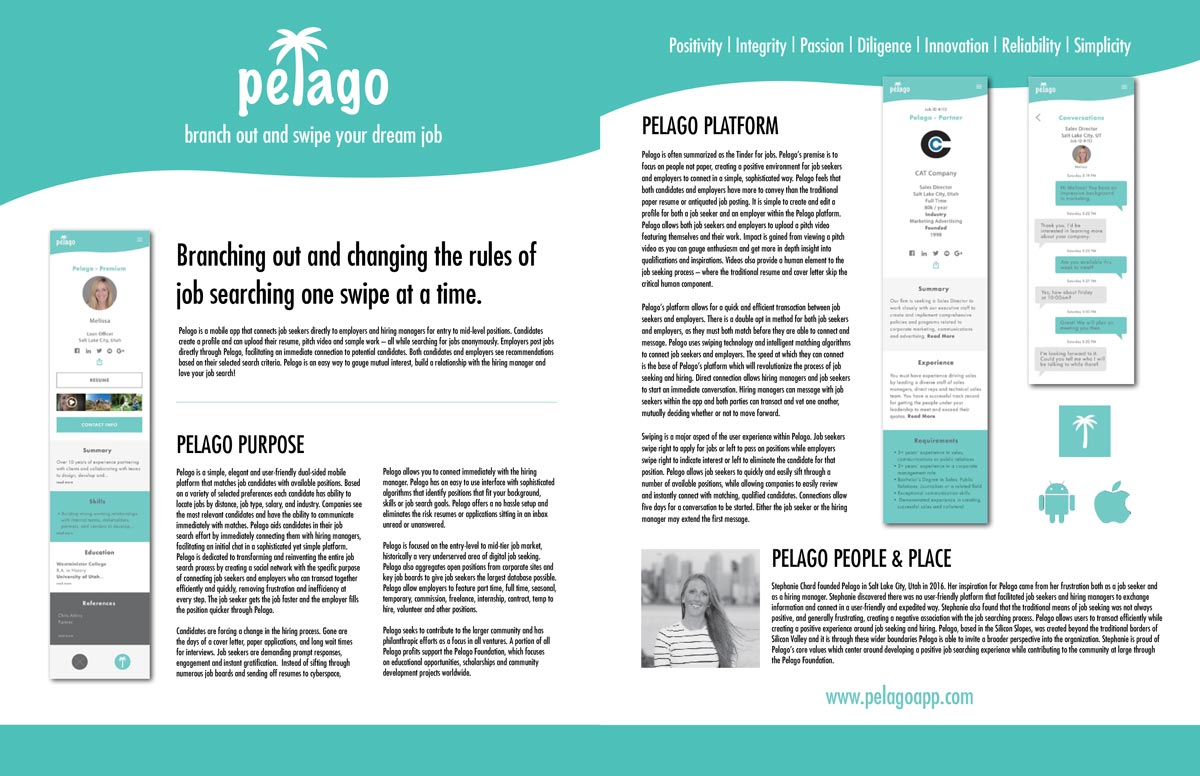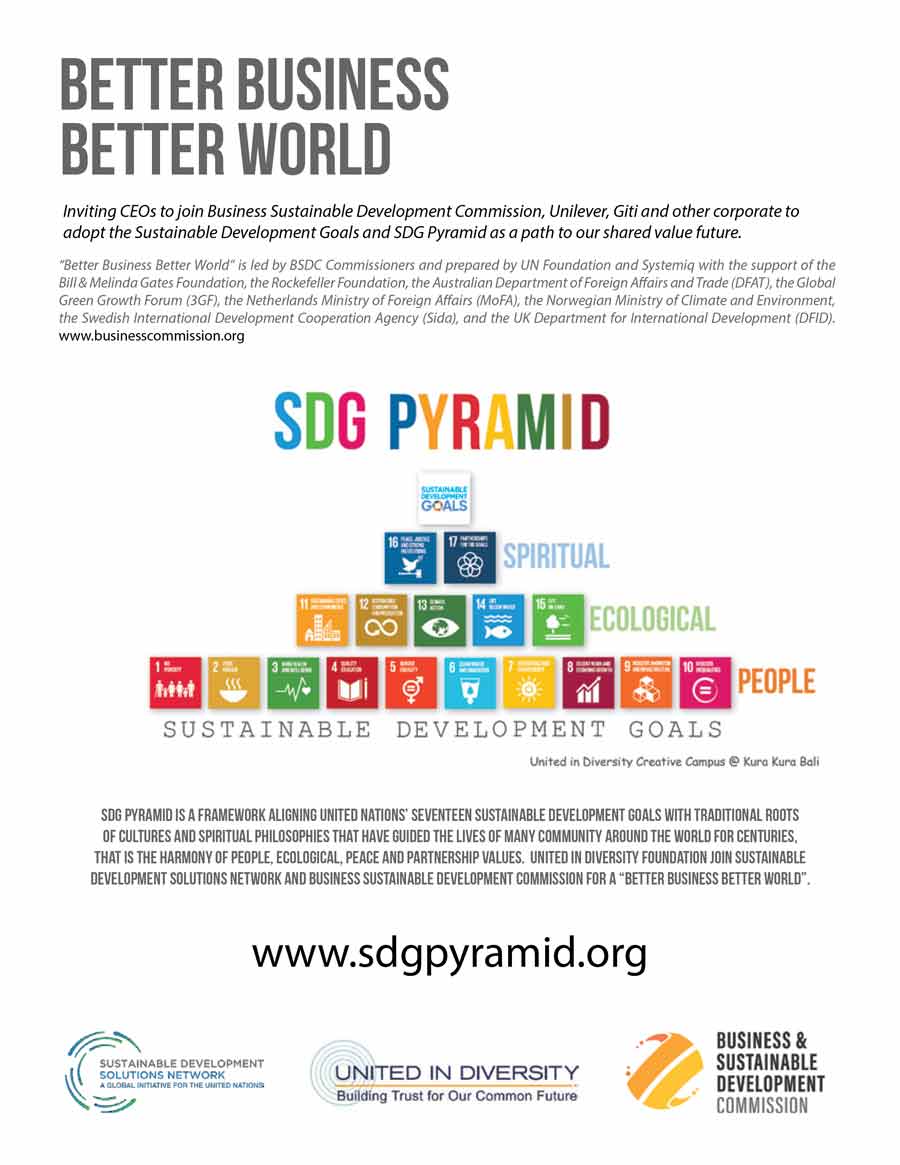Contents
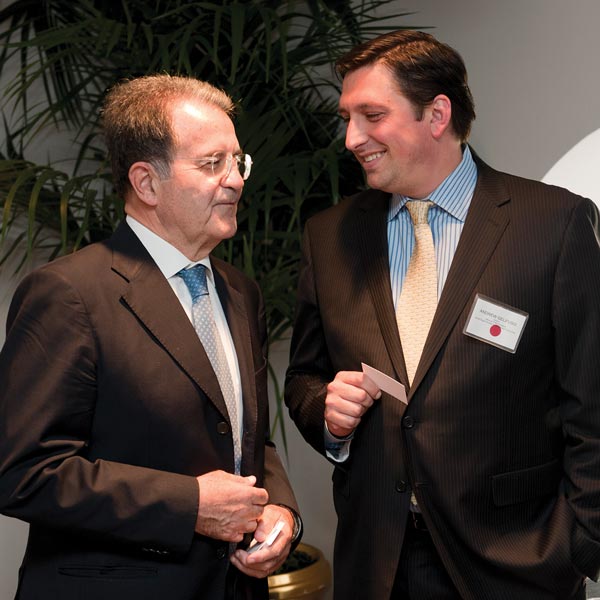
Lead Feature
34 / The Future of Globalization and International Trade
Andrew F. Gelfuso, Executive Director, World Trade Center, Washington, DC
By Ana C. Rold
Features
44 / The Potential of Reducing the Labour Market Gender Gap:
Lessons from Latin America
By By Julia Pomares, Gala Díaz Langou and Belén Abdala
58 / Beware Unproductive Success, Try Productive Failure
By Manu Kapur
60 / Peaceful Solutions Can Be Locally Led
By Liliya Yakova & Stacey Connaughton
62 / Language Rights Need to be at the Center of Global Policy
By Akshan de Alwis
76 / It Is More Important Than Ever to Prepare Students to Navigate a Digital World
By Christine Horansky
78 / IT’s Next Top Job Won’t Be Done by Developers
By Lauren Maffeo
80 / A Platform to Defend Free Trade
By Julija Simionenko-Kovacs
82 / Making Fossil Fuel Subsidies Obsolete
By Tobias S. Schmidt and Tyeler Matsuo
84 / The Future of the Global Economy is in Sustainable Development
By Jeremy Oppenheim
86 / Is Systemic Corruption Driving Violent Extremism?
By Luke Waggoner and Eguiar Lizundia
94 / Is Clean Coal the Answer to India’s Energy Security Needs?
By Frank Maxwell
96 / Shaping a Rising China’s Place in the Interconnected World
By Bailey Piazza
98 / Tracing Knots: Tangled Alliances in the Tinderbox Known as the Caucasus
By Justin Leopold-Cohen
100 / Get Ready: What You Need to Know About the Internet of Things
By Julie Kantor and A. Crosser
104 / Learning from the Luddites: Harnessing Modern Tech for Good
By Caroline Holmund
108 / Change your Wi-Fi Password NOW! Assessing Tomorrow’s IoT Risks
By David Clemens
Thought Leadership
20 / Human Bionics
By Dr Robyn Stokes
24 / Sustainable Growth
By Gianluca Riccio
26 / Global Trade
By John Denton
28 / Globalization
By Chris De Noose
30 / Shared Value
By Cherie Nursalim
32 / Health and Development
By Kimball Chen
Special Editorial Feature: GCEL
Branded Stories
Advertisers Index


Publisher:
Chris Atkins
catkins@thecatcompanyinc.com
001-801-7835120 (ext 200)
Editor-in-Chief:
Ana C. Rold
editors@diplomaticourier.org
Creative Director:
Christian Gilliham
christian@cgcreate.co.uk
(+44) 7951 722265

Page 06/07
Dr. Jürgen Heraeus
B20 Chairman
Dr. Stormy-Annika Mildner
B20 Sherpa
Page 08/09
Prof. Dr. Dieter Kempf
President of the Federation of German Industries (BDI)
Ingo Kramer
President of the Confederation of German Employers’ Associations (BDA)
Page 10/11
Dr. Eric Schweitzer
DIHK–President
Oliver Bäte
Allianz SE–CEO and B20 Taskforce Chair
Page 12/13
Dr. Kurt Bock
BASF SE–CEO and B20 Taskforce Chair
Klaus Helmrich
Siemens AG–Member of the Board and B20 Taskforce Chair
Publishing Firm:
The CAT Company, Inc.
CEO & Founder:
Chris Atkins
President of EMEA:
Tyrone Eastman
President-Inernational:
Mike Nyborg
Sales Executives:
Guy Furl
Richard Reale
James Regis
G20 Executive Talk Series

B20 Executive Committee
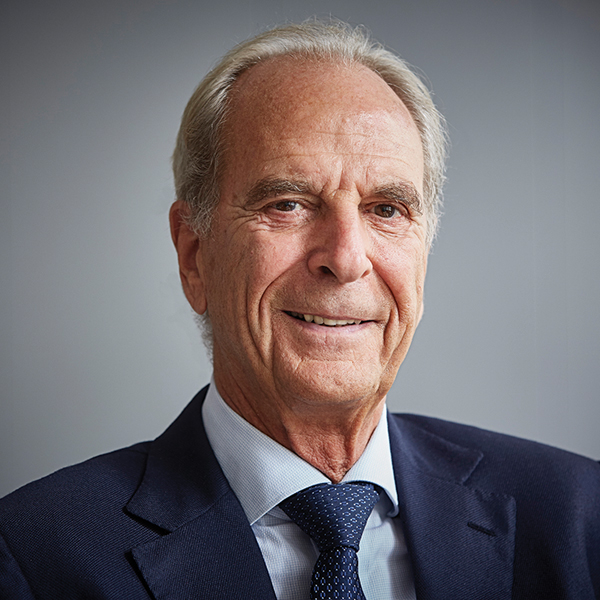
Dr. Jürgen Heraeus
B20 Chairman
B20 Germany: Resilience, Responsibility and Responsiveness
Germany took over the G20 Presidency in challenging times. Current events from the UK Referendum to the US Elections have demonstrated three things: Nothing can be taken for granted. Polls and forecasts frequently fail. And the world is becoming more and more uncertain. At the same time policy-makers around the world face massive challenges such as climate change, high unemployment, and security concerns.
Together, G20 members generate around 85 percent of global gross domestic product. In addition, they account for more than three quarters of world trade. As a consequence, this cooperation offers the outstanding opportunity to shape global economic governance. Our global economy is changing rapidly. We are facing a multitude of risks: climate change, political conflicts, terrorism to name just a few.
G20 Executive Talk Series

B20 Secretariate

Dr. Stormy-Annika Mildner
B20 Sherpa
B20: An Indispensable Partner of the G20
The work program of the 2017 B20 (Business 20) is ambitious. Eight working groups, each of which comprises around 100 representatives from companies, business associations, and international organizations, drew up recommendations to the G20 on diverse issues. Reaching consensus is not always easy, but the success of the B20 in previous years shows that it is more than worth it in the end.
Since 2010, the B20 has been responsible for the official business dialogue of the G20—the group of 19 leading industrialized and emerging economies and the EU. The global advisory body helps G20 members respond to global challenges—with consolidated and concrete action proposals that speak for the entire G20 business community. The complex and internationally connected work of the B20 is coordinated by business representatives of the country that at the time is holding the G20 Presidency. For the twelve months of the German Presidency, the leading German business associations—the Federation of German Industries (BDI), the Confederation of German Employers’ Associations (BDA), and the Association of German Chambers of Commerce and Industry—have taken over the leadership of the B20 from representatives of the Chinese business community, CCPIT. The B20 represents with one voice the business interests of all G20 members, in sectors ranging from manufacturing to finance. Both small and big companies take part in the B20. More than 700 representatives of companies and business associations belong to the B20 each year.
G20 Executive Talk Series

B20 Executive Committee

Prof. Dr. Dieter Kempf
President of the Federation of German Industries (BDI)
A Stronger Path for Growth
There is no doubt that globalization, overall, has led to a huge increase in the level of prosperity all around the world. Globalization is not a zero-sum game. The flow of ideas, goods, services, people, and finance fosters economic growth, decreases income inequality, as well as enhances inclusiveness and well-being.
Between 1990 and 2014, world trade increased about fivefold and the stocks of foreign direct investment grew roughly tenfold. Global GDP has more than tripled, putting it far ahead of global population growth: The average global income per capita has grown by nearly 240 percent since 1990. As billions of people have seen their living standards rise, global poverty has fallen by half.
The recent financial and economic crisis was a big setback. World production and global trade experienced sharp declines. Confidence in the stability of the world economic order was severely disturbed. We have made considerable progress since then. Economic growth, however, still remains shaky. Despite efforts from governments to restore the stability and resilience of financial markets, global economic growth has remained subdued. Many countries are still struggling with high unemployment rates, particularly among young people, as well as socio-economic inequality.
G20 Executive Talk Series

B20 Executive Committee

Ingo Kramer
President of the Confederation of German Employers’ Associations (BDA)
Creating Employment Opportunities for Everybody Through Dynamic Labor Markets and a Global Level Playing Field for Fair Competition
The BDA’s central mission is to actively represent business interests in the field of employment, social, and industrial relations policy. Together with the trade unions BDA stands for the successful German model of social partnership. It has been the leading constituent of the B20 Employment and Education Task force. This task force was chaired by BDA Vice President Gerhard F. Braun and consisted of employers’ organizations as well as of companies from a variety of sectors. Its 98 members covering 26 countries were chosen with respect to geographical and gender balance, representing all continents. The members came together during several physical and online meetings. The result of this process is a 60 page policy paper treating relevant issues related to employment and education, which will shortly be presented.
G20 Executive Talk Series

B20 Executive Committee
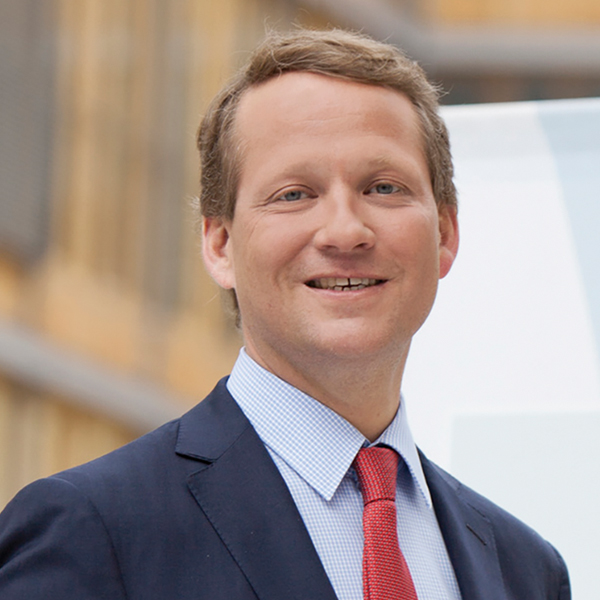
Dr. Eric Schweitzer
DIHK–President
SMEs – the backbone of economies
The time for the business community to raise its voice is now. Recent developments in global politics and economics show that businesses must emphasize the importance of international collaboration clearly and insistently. B20 Germany can play a key role in guiding the G20 towards a more open and inclusive environment for global trade and investment. Our mission includes enhancing free trade, increasing the participation of SMEs in global value chains and promoting inclusive labor market related education – topics that are also important to the Association of German Chambers of Commerce and Industry (DIHK). To raise the voice of SMEs around the globe with our global network of German Chambers of Commerce and Industry is part of that mission.
G20 Executive Talk Series

Strategic Partner

Oliver Bäte
Allianz SE–CEO and B20 Taskforce Chair
Certainty and Cooperation: Improving the Environment for Investment
The world economy has come a long way since 2008, when international financial markets were on the brink of collapse. The world economy has become a lot more resilient.
Yet, global economic growth has been depressed for several years. Financial conditions have tightened, risk appetite has decreased, credit risks have risen, and the repair of balance sheets has stymied. In advanced economies, heightened uncertainty and setbacks that hurt confidence have dampened growth prospects, while the economic powerhouses of emerging economies have lost steam not least because of declining oil and commodity prices.
In 2014, the G20 had agreed to increase global growth by at least two percentage points over the next five years – but we are far from reaching this goal. A lot of work remains to be done. Monetary policy has reached its limits. We need a new policy mix. Governments should redouble their efforts to improve the business environment. This includes facilitating private infrastructure investment and implementing more coherent and growth-oriented financial regulation.
G20 Executive Talk Series

Strategic Partner

Dr. Kurt Bock
BASF SE–CEO and B20 Taskforce Chair
Implementing Paris: Paving the Way For a Climate-Friendly, Innovative World Economy
Climate change is a reality that we must acknowledge and address. The Paris Agreement underscores the commitment of the global community to limit global warming to less than 2°C compared to pre-industrial levels. While the Agreement lays out essential goals, we must ensure that these goals are successfully implemented. This will not be easy. We will need to change the way we produce and consume energy across all areas of our economy, while also ensuring competitiveness, economic growth and job creation. Effective global climate protection will require innovation that can only be achieved by a competitive industry driving research and development aimed at delivering energy-efficient products and processes.
We need to think and act globally—now more than ever. The G20 members account for about 80 percent of global emissions and are therefore key players in reducing CO2 emissions. While the G20 cannot issue binding international rules, it can play an important role in setting the global agenda and providing much-needed leadership and guidance. Working together, the G20 can facilitate the transition to a low-carbon, energy and resource-efficient global economy. The B20 stands ready to support these efforts, and has set up a dedicated task force for energy, climate and resource efficiency, representing over 90 businesses from more than 20 countries and diverse economic sectors.
G20 Executive Talk Series

Strategic Partner
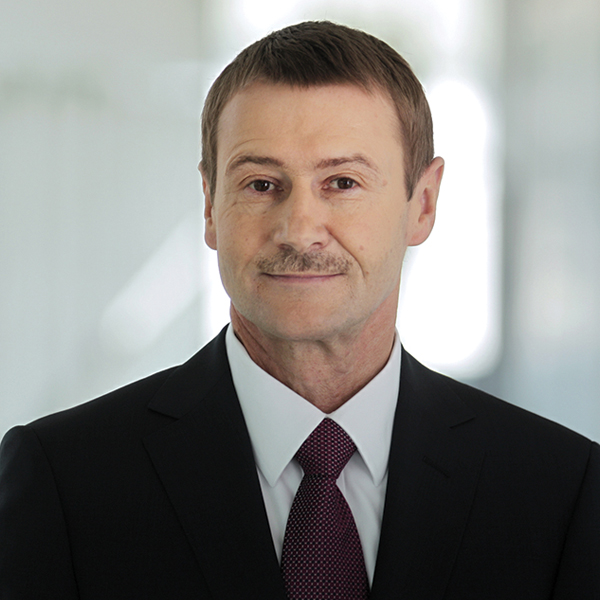
Klaus Helmrich
Siemens AG–Member of the Board and B20 Taskforce Chair
Global Connectivity: Increasing Welfare and Growth
Digitalization has revolutionized business models, interactions, and our daily lives, the ways we communicate, trade, produce and work. Worldwide, it fosters equal opportunities, global welfare, quality enhancement, and cost reductions. Digitalization is transforming production and production-related services along the whole value chain—from design, simulation and prototyping, as well as production planning to production and services. It is unlocking huge potential for individualized mass production, shorter time to market, higher productivity, and better utilization of resources – all based on smart use of data. Digitalization improves product benefits, boosts consumer welfare, and facilitates participation as well as equality. It is a critical cross-sectoral and cross-cutting means to achieving the Connect 2020 Agenda, the Sustainable Development Goals (SDGs) and the Addis Ababa Action Agenda—from growth, trade, and employment to health, education, energy access, infrastructure, agriculture, food security, and overall societal welfare: digital technologies are crucial catalysts of progress.
G20 Executive Talk Series
GCEL
HARNESSING THE POTENTIAL OF
THE DIGITAL ECONOMY
GABRIELA RAMOS – SPECIAL COUNSELLOR TO THE SECRETARY-GENERAL AND OECD SHERPA
The digitalisation mega-trend is realising wide-ranging economic and social implications, and this transformation must be responsibly managed, with the focus of policy-makers on enabling individuals, communities and businesses to adapt and continue to benefit. Critically, harnessing the potential of the digital economy is key to escaping the low growth and low productivity trap in which the global economy is caught.
G20 Executive Talk Series
GCEL
Harnessing the potential of the digital economy
How Digital Economy Tools
Can Assist To Rebalance The Global Economy
Captain Samuel Salloum – GCEL Co-Chairman
The Digital Economy has gained much attention by policy makers throughout the global arena since it promises to be the catalyst in today’s 21st century technology era to drive a new wave of global economic growth. At the same time, it is the Technology Industry, our trusted 24-hour service providers, that have the capabilities and know-how to deliver upon policy makers’ commitments thereby implementing what the world’s citizens demand. Therefore, it is important to know where the technology industry stands today and how it can deliver what technology makes possible to boost our global economy.
G20 Executive Talk Series
GCEL
Harnessing the potential of the digital economy
The Global Solution Foundation
For Sustainable Economic Growth Has Started
Captain Samuel Salloum – GCEL Co-Chairman
Following more than 10 years of R&D, global experts from several fields including trade development, technology, and finance have contributed their collective expertise towards achieving sustained economic growth by digitizing the USD 140 trillion B2B market place.
These exhaustive efforts have resulted in the creation of the required Global Solution Foundation to connect the strengths of the high, mid and low income countries towards rebalancing our global economy and creating economic prosperity for all.
G20 Executive Talk Series
Human Bionics
THOUGHT LEADERSHIP
Human Bionics
THOUGHT LEADERSHIP
Authored by: Dr Robyn Stokes
Converging technologies and human bionics:
A future where no one is ‘left behind’
Australia’s human bionics interface alliance is gaining momentum, inviting and stimulating new scientific and commercial partnerships.
Bionic Eye
Futurist and bestselling author, Ray Kurzweil speaks of 20,000 years of progress happening this 21st Century…and it’s not just possible, it’s probable. Exponential growth in technology made possible by the Internet of Things (IOT) is set to deliver extraordinary shifts via big data analytics, artificial intelligence and robotics and in turn, unstoppable changes in global health care. While there are ethical and practical questions (‘do we need a new definition of what it is to be human?’ and ‘will we work well with our robotic colleagues?’), a convergence of technologies will transform our everyday lives and health in ways we can barely imagine. Ignoring change may look like a safe, albeit unadventurous haven, but it is not an option. Breakthroughs in deep learning, robotics, digital biology, nanotechnology, neuroscience, bionics and additive manufacturing are converging and it is time for ‘moon shot thinking’ on what this will mean for humanity. What are the seemingly impossible problems that we will solve as humans and artificial intelligence collide? What are the step-wise changes in the design and delivery of healthcare solutions and changes in the way we manage global health that these converging technologies will bring?
G20 Executive Talk Series
Sustainable Growth
THOUGHT LEADERSHIP
Sustainable Growth
THOUGHT LEADERSHIP
Authored by: Gianluca Riccio
From the Low Growth Trap to Sustainable Growth:
The case for a coordinated G20 policy approach
Business at OECD highlights the risk of missing out on SME potential if the G20 fails to address the unintended consequences of regulation, alongside access to finance and cyber risks.
In Brisbane back in 2014 G20 leaders committed to reforms to raise GDP by 2% by 2018. Since then implementation has been sorely lacking, in fact governments have often been going in different directions – for example, research from the OECD, WTO and UNCTAD, shows that 145 new trade-restrictive measures were applied by G20 countries between October 2015 and May 2016. The result is that when global leaders meet again in Hamburg in July 2017, they face a decidedly mixed economic picture.
G20 Executive Talk Series
Global Trade
THOUGHT LEADERSHIP
Global Trade
THOUGHT LEADERSHIP
Authored by: John Denton
Building Bridges
Between Nations
The world we live in has been built on the power of exchange.
From the earliest sketchings in caves, we have exchanged ideas. By sharing stories throughout time, we have passed on wisdom to each generation. Without this exchange, each of us would have to learn about the world for ourselves, rather than standing on the shoulders of giants.
Global prosperity depends on extensions of this exchange – to goods, services and finance.
But this mechanism is being eroded by uncertainties and inconsistencies. The asymmetry between capital and investment in global infrastructure is a case in point. There is no shortage of capital but there are many impediments to creating a market for long-term infrastructure and green finance investments. There is no one overriding factor, more a series of systemic challenges.
G20 Executive Talk Series
Globalization
THOUGHT LEADERSHIP
Globalization
THOUGHT LEADERSHIP
Authored by: Chris De Noose
Making Globalization
Work for Everyone:
Locally Focused Banks’ Role
People are seeking solutions to cope with globalization. Perhaps that is why, more than ever, the G20 process becomes even more important.
Aforce for shaping global financial policy, the G20 impacts greatly the 7,000 locally focused banks that make up the World Savings and Retail Banking Institute and the places where they serve. When we share our G20 messages with policymakers and stakeholders, two big themes are always conveyed.
First, we always discuss better regulation. More specifically, that any new and existing legislation should apply the principle of proportionality. In general, this principle has been well placed in the mind-set of decision makers. We find that in Europe, however, savings and retail banks, with normally less-complex models, are hit with the same post-crisis banking rules designed for globally active banks in mind. That mismatch can and should be fixed.
G20 Executive Talk Series
Shared Value
THOUGHT LEADERSHIP
Shared Value
THOUGHT LEADERSHIP
Authored by: Cherie Nursalim
Better Business,
Better World
Inviting CEOs to join BSDC, Giti, Unilever and others to adopt the SDG Pyramid as a path to our shared value future.
“In the fourth industrial revolution, there is a need for business to be reimagined,” Sunil Mittal, Chairman of the International Chambers of Commerce (ICC) conveyed at a strategy meeting in Bangkok. A transformative approach is proposed that includes reimagining business in the data, digital, sharing economy revolution such as our foray into digital learning and certification launching ICC Academy platform in Singapore to educate SMEs and professionals from trade finance to fintech. Reimagine business also revisits the core founding principle of the ICC as merchants of peace (through partnerships), to incorporate ecological and social realms as it played a key role as merchants of sustainable development in support of the United Nations 2030 agenda.
G20 Executive Talk Series
Health and Development
THOUGHT LEADERSHIP
Health and Development
THOUGHT LEADERSHIP
Authored by: Kimball Chen
Africa Targets Clean Cooking
Energy access in Africa is not only a matter of energy policy, it is an urgent health priority.
In 2017, with the promise of continued strong European support to drive progress on the UN Sustainable Development Goals, and with Germany presiding over the G20, it is an opportune moment to highlight the need to tackle the issue of household air pollution derived from cooking smoke. This is a key development issue that has risen to the forefront of the global development stage.
G20 Executive Talk Series
Lead Feature / International Trade
Authored by: Ana C. Rold
The Future of Globalization and International Trade
Interview with Andrew F. Gelfuso, Vice President, Trade Center Management Associates (TCMA) Ronald Reagan Building & International Trade Center Executive Director, World Trade Center, Washington DC
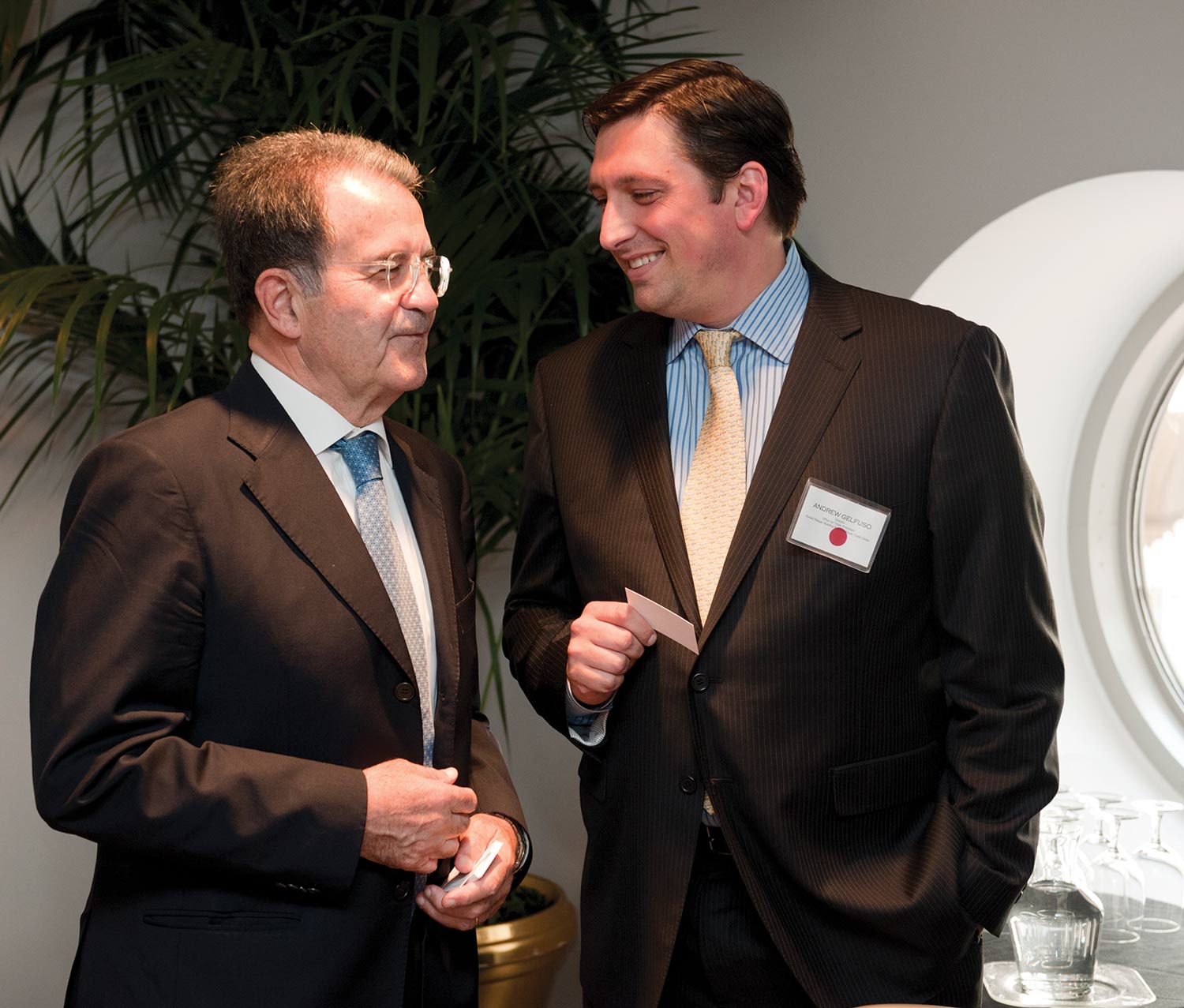
Andrew F. Gelfuso and Former Italian Prime Minister Romano Prodi at the Ronald Reagan Building in Washington, DC.
Donald J. Trump’s rise to the Presidency of the United States has required businesses to rethink globalization, especially as it pertains to international trade. In the past three months, scholars and experts have asserted that the election of Donald J. Trump has signaled a retreat for globalization. However, based on globalization trends and the fact that the global economy is more integrated today than during the peak of the early 20th century, what we will see is the pace of globalization actually continue to increase, with new opportunities and challenges arising for leaders.
G20 Executive Talk Series
G20 YEA
Authored by: Carsten Lexa, LL.M.
The G20 Young Entrepreneurs´ Alliance: A Strong International Voice Against Youth Unemployment

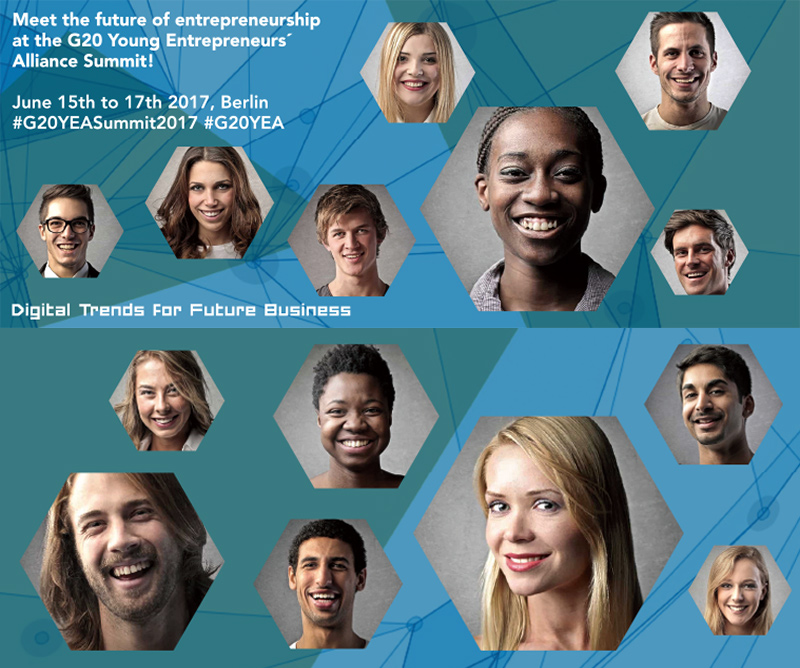
What is the result of a combination of low rates of growth, high level of youth unemployment and an increasingly younger population in a country? An increasingly troubling economic outlook! That´s what the G20 members have faced for the past several years and in parts still face today. Therefore, the question that has to be answered is this: what policies can G20 governments adopt to address youth joblessness and disengagement and as a result encourage growth in their countries? Many economies that are rapidly developing face the challenge of finding work for large numbers of young people who will soon enter the workforce. Who can provide an answer to the challenge of youth unemployment?
G20 Executive Talk Series
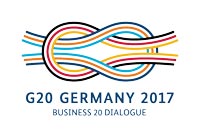
Women 20 Dialogue
Diverse, Resilient and Viable:
Stabilising Economies and Societies Through Women’s Empowerment
The international forum G20 has an ambitious goal: it aims to improve prosperity for people around the world through sustainable economic growth. Influential economic organizations such as the OECD or the World Bank long since recognized that this goal cannot be achieved without strengthening the economic position of women.
Diverse, Resilient and Viable:
Stabilising Economies and Societies Through Women’s Empowerment
The international forum G20 has an ambitious goal: it aims to improve prosperity for people around the world through sustainable economic growth. Influential economic organizations such as the OECD or the World Bank long since recognized that this goal cannot be achieved without strengthening the economic position of women.
Diverse, Resilient and Viable:
Stabilising Economies and Societies Through Women’s Empowerment
The international forum G20 has an ambitious goal: it aims to improve prosperity for people around the world through sustainable economic growth. Influential economic organizations such as the OECD or the World Bank long since recognized that this goal cannot be achieved without strengthening the economic position of women.
What is the current economic position of women? Throughout the world, including in G20 member states, women are not able to participate equally in society and the economy. On average, women receive lower pay, are less likely to be promoted, and are much more likely to engage in unpaid labour such as housework, raising children, and caring for infirm relatives. Various studies have also shown that it is much more difficult for women to get loans or attract investment.
G20 Executive Talk Series
Gender Gap
Authored by: Julia Pomares, Gala Díaz Langou and Belén Abdala
The Potential of Reducing the Labour Market Gender Gap:
Lessons from Latin America
Gender equality and women’s economic empowerment are crucial factors for the sustainable development of societies.
G lobally, women are often subject to wide ranging employment discrimination and workplace inequality, leading to a lower economic status that is reflected in several indicators, such as the number of women living in poverty, the rates of unemployment, underemployment and the high proportion of unpaid work.
Women’s participation in the labour market has remained steady in the two decades from 1990 to 2010, drifting around 52%. In addition to the slow improvements in the incorporation of women into the labour market, the gap in the participation rates of women and men remains substantial. In 2010, women’s labour force participation rates were below 30% in Northern Africa and Western Asia, below 40% in Southern Asia, and below 50% in the Caribbean and Central America. This situation aggravates when gender identity is compounded by other types of inequalities such as economic and social power and discrimination on the grounds of race, class or income.
G20 Executive Talk Series

Branded Story / International Trademark Association
Why Brands Matter

Brands do not exist. One could make this argument, claiming that you can’t harvest a brand in the ground, build it from raw materials in a factory, or mass produce it and store in a warehouse. You can’t forget to pack it before leaving on holiday or accidentally leave it lying around for the dog to chew.
G20 Executive Talk Series

Branded Story / Astana Expo 2017
Welcome:
Akhmetzhan Yessimov
Chairman of the Board at NC Astana EXPO-2017
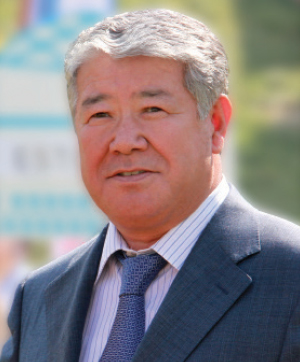
The development of green technologies is a key objective of the international society which is facing global climate change, striving for stable development and an energy efficient lifestyle.
This summer, between June 10 and September 10, the International Specialized Exhibition EXPO 2017 “Future Energy” will take place in Astana, the capital of Kazakhstan, with 115 countries and 20 international organizations due to take part. As the organizers of this key event in the sphere of renewable energy, we are glad that during the G20 summit the climatic and energy challenges of the modern world will be discussed.
EXPO 2017 is an excellent platform for demonstrating all the achievements of the countries in the field of renewable energy and also a powerful impetus for the further growth of green energy.
G20 Executive Talk Series

Branded Story / Astana Expo 2017
The Event:
Global Energy Future to be discussed at Astana EXPO 2017
The International Specialized Exhibition Astana EXPO 2017 “Future Energy” will showcase recent developments in the sphere of renewable energy.
Astana will present itself as a city where the world will learn about the most advanced green technologies and achievements. Representatives of 115 countries and 20 international organizations will participate in EXPO 2017, with each a pavilion of its own.
World-famous scientists and experts, politicians and members of the business community will discuss global issues related to developing renewable energy sources at various forums and themed conferences during the Astana EXPO 2017. They will draft global policy documents for promoting an energy efficient lifestyle and actively introducing renewables.
G20 Executive Talk Series
Branded Story / TCG
Authored by: Neil Hare
In the Post World War II International Order:
It is Time for Change in Taiwan
There is currently underway a reorganization of the international order and agreements put in place in the years after WWII. Arguably, this movement began with the Brexit victory last July, and has been punctuated with the election of Donald J. Trump last November.
President Trump has made it clear that he will evaluate and change many of the international agreements and organizations that have presided over the last 70 plus years, including defense pacts, trade agreements, and nuclear non-proliferation treaties. He’s told NATO countries they must pay their fair share of defense costs, Israel that he is open to a “One State” solution, and Russia that he is amenable to working with them in Syria towards defeating ISIS.
G20 Executive Talk Series
Mobile Technology
Authored by: Anne Harris
Silicon Valley’s Cousin: Mobile Technology Development in Turkey
Turkey is being hailed as the new Silicon Valley, due to a massive surge of mobile tech development in the area.
Turkey is being hailed as the new Silicon Valley, due to a massive surge of mobile tech development in the area. An astoundingly young and well-educated population has cultivated an environment ripe with startups and entrepreneurial think tanks. Turkey’s young population finds itself adopting only the latest and greatest devices, allowing for endless opportunity to develop new applications for emerging platforms. In fact, some of the fastest growing companies in Turkey are based in mobile technology.
G20 Executive Talk Series
Global Education
Authored by: Manu Kapur
Beware Unproductive Success, Try Productive Failure
How do we prepare children for the future of work in a world of volatility, uncertainty, complexity and ambiguity?
Education systems around the world are battling a challenging problem: How do we prepare children for the future of work in a world of volatility, uncertainty, complexity and ambiguity (VUCA)? A future that will require students to have not only basic knowledge in their specialist domains, but also critical 21st century skills and competencies such as: critical thinking, creativity, teamwork, and resilience.
G20 Executive Talk Series
Peace & Conflict
Authored by: Liliya Yakova & Stacey Connaughton
Peaceful Solutions Can Be Locally Led
Peacebuilding and violence prevention in the future may increasingly need to be driven by those local to conflict.
Every year, war and armed conflict affect the lives of many. According to a 2017 estimate by the International Institute for Strategic Studies, 40 active inter- and intra-state conflicts around the world resulted in 167,000 fatalities in 2015.
Armed conflict destroys human life, but its consequences go beyond the loss of life. As scholars of conflict argue, war is a development problem because war is often triggered by inequality and resource competition. War leads to refugee issues, infrastructure devastation, long-term social, political, economic, and environmental instability. Peace creates conditions for development so productive ways to build peace and prevent conflict are needed. As suggested in a 2015 Guardian article, this is particularly evident now due to the increasing aversion of Western states and allies to intervene in armed conflict and build peace outside their borders. Because of this, peacebuilding and violence prevention in the future may increasingly need to be driven by those local to conflict.
G20 Executive Talk Series
Languages
Authored by: Akshan de Alwis
Language Rights Need to be at the Center of Global Policy
Due to globalization processes languages are under threat or disappearing altogether. When languages fade, so does the world’s rich tapestry of cultural diversity.
Languages, with their complex implications for identity, communication, social integration, education and development, are of strategic importance for people and planet. Yet, due to globalization processes, they are increasingly under threat, or disappearing altogether. When languages fade, so does the world’s rich tapestry of cultural diversity. Opportunities, traditions, memory, unique modes of thinking and expression — valuable resources for ensuring a better future — are also lost.
G20 Executive Talk Series
Branded Story / Eden Roc at Cap Cana
Relais & Chateaux’s Eden Roc at Cap Cana Completes Addition of Luxury Two-Bedroom Beach-Front Suites
New beachfront suites double accommodations, open April 1 at ultra-luxury Dominican Republic resort
March 23, 2017 (Punta Cana, Dominican Republic) – The Dominican Republic continues to increase its offerings as a luxury destination with Eden Roc at Cap Cana’s completion of 26 Two-Bedroom Beachfront Suites, rounding out an expansion that has already revealed a completely renovated Beach Club with infinity pool; ocean view fitness center equipped with state-of-the-art machines, aero yoga and wellness areas; BLUE Grill + Bar; and refreshed private beach with bar.
G20 Executive Talk Series
Branded Story / ISCA
Authored by: Antony Sprigg
Converting the Halo Effect to a Virtuous Cycle: How Infrastructure Sustainability will Unlock Sustainable Infrastructure and the Capital Needed
ISCA CEO and a Federal Minister awarding a project for an Infrastructure Sustainability rating.
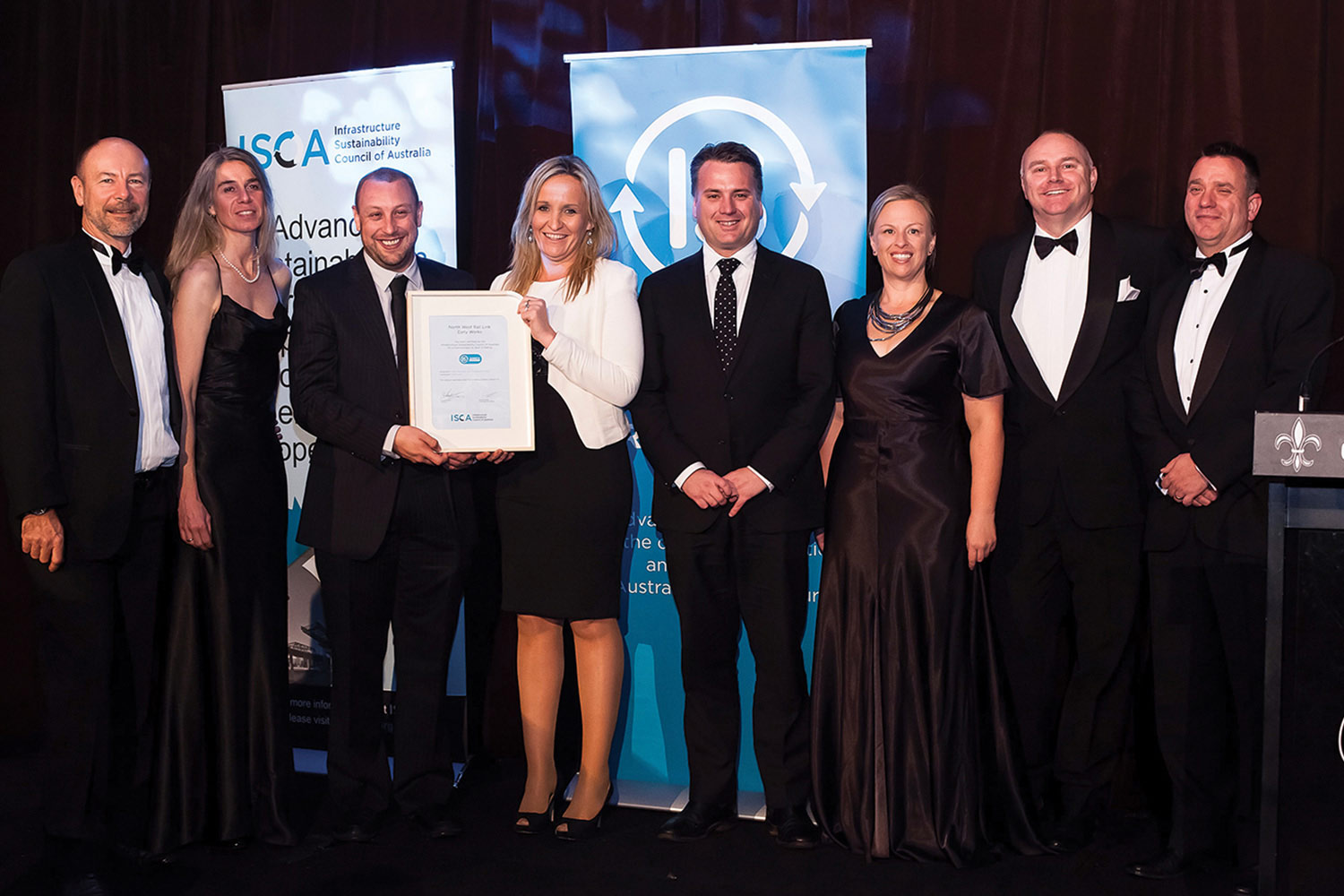
ISCA CEO and a Federal Minister awarding a project for an Infrastructure Sustainability rating.
“Infrastructure is good! It creates jobs and stimulates the economy.” Well that is not necessarily true, especially when the wrong infrastructure solution is implemented or when infrastructure is poorly delivered and operated. The upstream and downstream impact on the economy, society and environment can be massive and compromise the infrastructure’s social licence, thus affecting financial performance and future investments. If we don’t acknowledge and deal with the macro misnomer that ‘infrastructure is good’, then the gap will continue to exacerbate between attracting private capital and sufficient suitable project availability. This is an OECD and non-OECD issue.
G20 Executive Talk Series
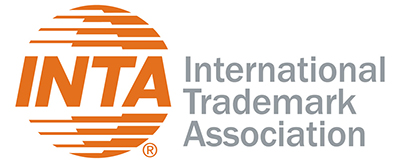
Branded Story / International Trademark Association
How Governments can Lead the Fight for Brand Owners’ Rights
As any leading businessman can confirm, a strong brand is at the heart of a successful business. This meeting in Germany gives us the chance to reflect on the strengths of the many businesses that are built on outstanding brands and a reputation for high quality products and to discuss what our priorities should be to grow and protect those brands.
G20 Executive Talk Series

Branded Story / International Trademark Association
The Three Biggest Challenges for Brand Owners
In 2017, governments face many conflicting economic priorities. But the key priority as ever for the economy is to drive growth and maintain low unemployment. We believe placing brands and brand protection at the core of any economic policy will enable them to do that. Without the ability to build and protect a strong brand, businesses cannot invest for the long term.
G20 Executive Talk Series
Education
Authored by: Christine Horansky
It Is More Important Than Ever To Prepare Students to Navigate A Digital World
It is more important now than ever before, that we find ways to prepare the next generation to navigate life in a complex, ever-changing digital world.
In case anyone hasn’t noticed, amidst self-driving cars and planned vacations to the moon: the future is here. The fast-paced onset of the space age, with all its promise and discontent, is causing many of us to catch our breath. For those of us still listening to TLC and Green Day, this year was a reminder that the future is arriving at breakneck speeds.
G20 Executive Talk Series
Artificial Intelligence
Authored by: Lauren Maffeo
IT’s Next Top Job Won’t Be Done by Developers
The robots aren’t coming — they’re already here.
The robots aren’t coming—they’re already here. The Oxford English dictionary defines artificial intelligence as “The theory and development of computer systems able to perform tasks that normally require human intelligence, such as visual perception, speech recognition, decision-making, and translation between languages.” From Facebook using bots for suicide prevention to Mark Cuban’s prediction that the world’s first trillionaire will work in AI, this topic has earned exponential interest. That’s due to an equal dose of fear and fascination.
G20 Executive Talk Series
Free Trade
Authored by: Julija Simionenko-Kovacs
A Platform to Defend Free Trade
The eroding support for free trade and open borders has put globalization on the verge of retreat.
During the World Economic Forum’s annual meeting in January, globalization was among the top five priorities. The upcoming G20 Summit in July will provide another golden opportunity for heads of state and government to make the case for the benefits of free markets and to encourage countries to avoid harmful protectionist policies.
G20 Executive Talk Series
Energy
Authored by: Tobias S. Schmidt and Tyeler Matsuo
Making Fossil Fuel Subsidies Obsolete
Hybrid policies provide an opportunity for international organizations to move from being the scapegoat for driving up energy prices, to enablers of new, job creating alternatives.
In early 2012, the Nigerian government drastically cut diesel and petroleum subsidies causing local fuel prices to more than double overnight. Violent public protests broke out in response, leading the Nigerian government to quickly reinstate national fossil fuel subsidies. While the Nigerian case is extreme, it illustrates a common challenge facing many countries: Despite the recognized benefits of fossil fuel subsidy reform, the reality of subsidy removal can be a political nightmare. Past reforms focused on the politically unpalatable policy of making fossil fuels more expensive, ignoring the possibility that reform can also be tackled by making fossil fuels more obsolete.
G20 Executive Talk Series
Sustainable Development
Authored by: Jeremy Oppenheim
The Future of the Global Economy is in Sustainable Development
A growing wave of companies believe that prosperity can be achieved if it is founded on the principles of a more sustainable, inclusive model of economic growth.
The year 2015 was filled with positive achievements for our collective future, with the adoption of both the UN Sustainable Development Goals (SDGs) and the Paris Agreement. The year 2016 came as a stark contrast to 2015. Our assumptions about the global economy were shaken, with many asking whether the costs of globalization are greater than its benefits.
G20 Executive Talk Series
Global Security
Authored by: Luke Waggoner and Eguiar Lizundia
Is Systemic Corruption Driving Violent Extremism?
Public opinion research indicates corruption one of the foremost issues of concern to ordinary citizens, and trust in government institutions has reached an all-time low.
In recent years, high-profile corruption scandals have unleashed a wave of popular protests against politicians across the world. Public opinion research indicates corruption one of the foremost issues of concern to ordinary citizens, and trust in government institutions has reached an all-time low.
G20 Executive Talk Series
SDGs
Authored by: Erika Veberyte
The Future of International Cooperation and Development in the Era of Globalization
The transnational nature of many problems calls for multilateral assistance to help the less fortunate and to ensure the security and wellbeing of our peoples.
With the post-Cold War era fading, discussions on levels of foreign assistance are focusing primarily on cutting budgets. No longer is its importance and successes the dominant narrative. In the face of new opportunities, such as technology which is providing interconnectivity, and immense challenges offered by globalization, a growing number of world leaders are consumed with domestic problems in their backyards. Thus, they are withdrawing from multilateral organizations that have been the bedrock of security and cooperation for the past several decades. However, the transnational nature of many problems calls for multilateral assistance to help the less fortunate and to ensure the security and wellbeing of our peoples.
G20 Executive Talk Series
Digital Economy
Authored by: Bailey Piazza
Indicators of Consumer Protection and Empowerment in the Digital World
The growth of the digital economy is severely hampered by barriers and fears.
There is no doubt about it: digitalization is transforming society. From the way we communicate with each other to the way we shop for clothes, a dependency on technology has increased innovation, choices, and competition. However, while this technological dependency holds a boon of future capability for the international community, over one half of the global population still does not have access to the internet. Of the many consumers who do use the Internet:
G20 Executive Talk Series
Energy
Authored by: Frank Maxwell
Is Clean Coal the Answer to India’s Energy Security Needs?
Is it really feasible for a country with such an abundance of coal reserves to turn its back on that cheap source of energy? As it turns out, not really.
Did India’s new energy strategy – which promises to exceed its COP21 commitments by a whopping 50% – signal that the world’s largest democracy is joining hands with conservationists and moving away from fossil fuels? Can this bastion of fossil fuels, where coal still accounts for 61% of its energy mix, kill the two birds of economic development and public health with one stone? That seemed to be the case, judging by the flurry of headlines that came out in December praising New Delhi’s audacity. After all, this was a country that a little over a year ago was locked in a high-profile struggle with the developed world over its reliance on fossil fuels.
G20 Executive Talk Series
China
Authored by: Bailey Piazza
Shaping a Rising China’s Place in the Interconnected World
China’s increasing development and rising assertiveness has brought the international community to the edge of their seats waiting to see how America will respond next: with cooperation or conflict.
Since the end of the Cold War, China, as well as much of East Asia, experienced large strides in political, economic, and cultural growth. China’s increasing development and rising assertiveness has brought the international community to the edge of their seats waiting to see how America will respond next: with cooperation or conflict. The mission of the 2017 G20 conference calls all countries to pursue mutual interdependencies, but China’s rise as a global power and growing economic presence has resulted in a palpable rise in Beijing’s ambitious interests that foster severe tensions with other Asian countries as well as a hegemonic relationship with the United States. Based on China’s impactful history, international relations, and domestic politics, and economic feats, U.S. policymakers should be wary that conflict with China is possible but certainly not inevitable.
G20 Executive Talk Series
The Caucasus
Authored by: Justin Leopold-Cohen
Tracing Knots:
Tangled Alliances in the Tinderbox Known as the Caucasus
In 1796, President George Washington said the United States ought to avoid entanglement in affairs that don’t involve America. But should that be the case today?
In 1796, President George Washington delivered his farewell address, a goodbye to public service, which also included his advice on how the fledgling nation ought to progress to assure continued peace and prosperity. One of the more noteworthy clauses of that address was that the United States ought to “steer clear of permanent alliances with any portion of the foreign world,” to avoid entanglement in affairs that don’t involve America.
G20 Executive Talk Series
IOT
Authored by: Julie Kantor and A. Crosser
Get Ready:
What You Need to Know About the Internet of Things
Today’s devices make up only 0.1 percent of all new innovations expected to connect to the internet. Our lives are going to change significantly as this sector grows exponentially.
Iwas talking with my good friend Sheryl Sleeva and discussing that there will be a day in the not so distant future where your refrigerator will re-order food for you automatically. Out of Honest Tea and So Delicious dairy free ice cream? No worries, it arrives in less than three hours. At 4pm, your thermostat goes from 65 to 72 degrees. Your home, lightbulbs and all appliances will be getting ready to welcome you when you return from work.
G20 Executive Talk Series
Technology
Authored by: Caroline Holmund
Learning from the Luddites:
Harnessing Modern Tech for Good
As menial, long-hours-for-low-pay jobs have become mechanized, people have moved on to occupy higher paying jobs that allow for more free time and disposable income to spend on well-being.
Donald Trump has been lauded for keeping his promise to workers at air-conditioner manufacturer Carrier, keeping at least 800 jobs from going to Mexico via direct intervention. In many ways, Trump’s approach encapsulated the policies he advocated on the campaign trail: cutting regulations and slashing corporate taxes to bring manufacturing jobs back to America.
G20 Executive Talk Series
IOT
Authored by: David Clemens
Change your Wi-Fi Password NOW!
Assessing Tomorrow’s IoT Risks
Effective security will remain as one of the main roadblocks in the implementation of IoT technology unless developers can address new risks.
On October 21, 2016 the United States was hit with a massive DDOS attack that knocked out several websites for hours in the early morning. Disrupted denial of service attacks (DDOS) flood and overload servers with fake requests to disrupt online services for Americans and their companies. In this attack, security experts report that Mirai, a software program, was used to infect technology ranging from DVRs, to routers and even internet connected cameras. Mirai accessed these devices through malware from phishing emails, a process in which hackers send emails disguised as legitimate businesses in an attempt to gain access to one’s information. This method is new and unique because, unlike a traditional network breach, the hackers took control over insecure devices by using simple methods, like searching for open networks and devices that still use factory-default passwords. The most troubling element of this attack is that Mirai’s open sourced code was recently made available on the internet.

Thanks for reading our May 2017 Issue!


